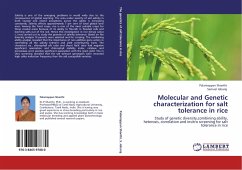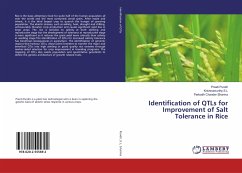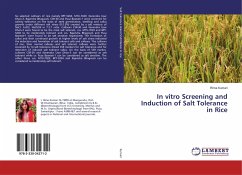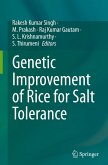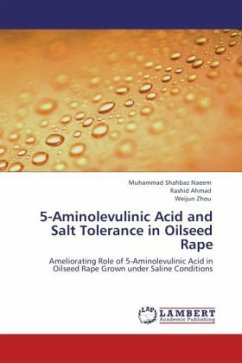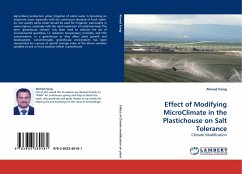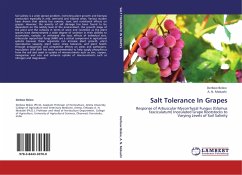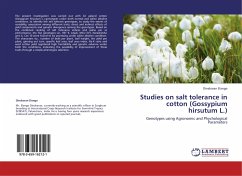Salinity is one of the emerging problems in world wide due to the consequence of global warming. The area under severity of soil salinity in both coastal and inland ecosystems across the globe is increasing constantly. Salinity affects approximately 7 per cent of total global land area. Among the food crops, rice is one of the most suitable crops for these coastal areas because of its ability to flourish in flooded soils and leaching salts out of the soil. Hence this investigation in rice (Oryza sativa L.) was carried out to study the genetics of salinity tolerance. Based on the diversity analysis 14 parents were selected and for crossing. The combining ability analysis revealed that the importance of non-additive gene action in controlling all the salinity tolerant and yield contributing traits. The characters viz., chlorophyll a/b ratio and shoot Na/K ratio had negative significant association and chlorophyll stability index, catalase and peroxidase were positive significant association with the grain yield. The in vitro screening revealed that the salt tolerant genotypes were recorded high callus induction frequency than the salt susceptible varieties.

